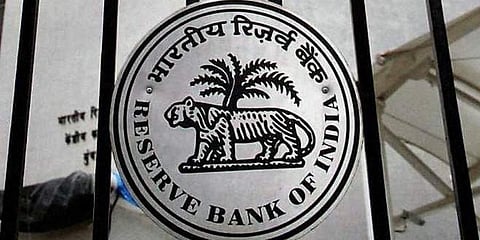

MUMBAI: The aggressive push to a digital payments and settlement system has paid rich dividend to the Reserve Bank as the share of paper clearing in retail payments has come to trickle in FY2020, show the latest RBI data.
In FY2020, the share of paper clearing in total retail payments plunged to just 2.96 per cent in terms of volume and to 20.08 per cent in terms of value, the data showed.
In FY2016, when the central bank began to push digital payments aggressively on the back of the contentious note-ban, paper/cheque clearings accounted for a high of 15.81 per cent in volume and nearly half in terms of value at 46.08 per cent of the total retail payments.
That the efforts towards digitization have been very successful is clear from the steady fall in the share of paper clearing.
From 15.81 per cent in volume and 46.08 per cent in terms of value in FY2016, the same shrunk to 11.18 per cent and 36.79 per cent, respectively, in FY2017.
Come next year, the numbers plunged further with the volume dipping to single-digit at 7.49 per cent and value falling to 28.78 per cent in FY2018.
The volume share nearly halved to 4.60 per cent and value fell further to 22.65 per cent in FY2019, according to the RBI.
Between FY2016 and FY2020, digital payments as a whole have grown at a compounded annual growth rate of 55.1 per centfrom 593.61 crore in FY16 to 3,434.56 crore in FY20, according to the RBI data.
In absolute terms, the value has grown from Rs 920.38 lakh crore to Rs 1,623.05 lakh crore during this period, clipping at an annual compounded rate of 15.2 per cent.
In FY17 digital payments jumped to 969.12 crore from 593.61 crore in the previous year in volume, and to Rs 1,120.99 lakh crore in value.
Similarly, the numbers continued to scale new peaks with volume growing to 1,459.01 crore and value jumping to Rs 1,369.86 lakh crore in FY18.
Come FY19, the numbers clipped at a faster pace with volume jumping to 2,343.40 crore transactions while the value inched down to Rs 1,638.52 lakh crore.
Given the pandemic and the lockdown restrictions, the digital payments volumes are set to jump manifold while the value could see a further plunge given the mammoth crisis that everyone faces following the pandemic.
The digital payment push started almost a decade back with limited access to NEFT, RTGS and ECS payments.
Later with government push digital payments gained further momentum.
The development of UPI-based payments as well as app-based payments just pushed the boundaries and has since then witnessed blossoming of a myriad of payment systems, entry of non-bank players, and a gradual shift in the customer behaviour from cash to digital payments.
Behind all these, the Reserve Bank has played the crucial role of an operator, catalyst and facilitator, regulator and supervisor.
Some recent RBI initiatives to enhance security and increase customer confidence in digital payments include mandating use of only EMV chip and PIN-based debit and credit cards from January 2019; tokenisation from January 2019; facility to switch on/off transactions; mandatory positive confirmation to remove any ambiguity of NEFT/RTGS funds transfers from March 2010, and January 2019, respectively.
One of the biggest outcomes of these measures is the massive change in the customer behaviour-for instance the debit card usage has jumped from 20 per cent in FY16 to 45 per cent in FY20.